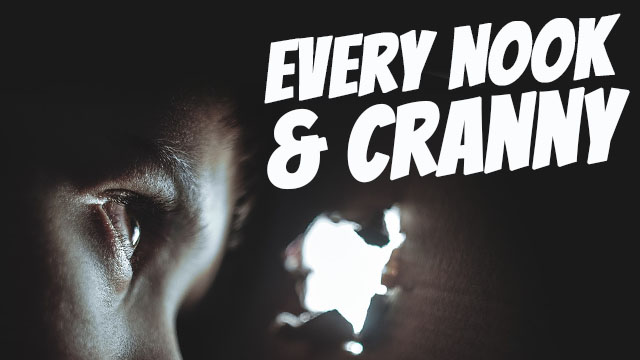AE 256 Expression: To Be Up In Arms
Learn Australian English in this Expression episode of Aussie English where I teach you how to use the expression TO BE UP IN ARMS.
AE 266 – Expression: To be up in arms ABOUT/OVER something
G’day guys.
Welcome to this episode of Aussie English.
Today’s another Expression episode, and I’m so pumped to chat to you guys, I’m so pumped.
It’s been a long week.
I’ve been working away doing a whole bunch of stuff on the PhD.
I’m really trying to wrap that up, I’m really trying to finish that up, trying to get it done by hopefully April, hand it in.
And, I’ve been chatting with one of my friends Shana who is about to marry someone from Brazil, and she wants me to come over to Brazil for a little bit to work on some English language courses.
So, I’ve been working on some really cool stuff with her recently.
She’s an American.
And, we’ve been working on putting together some little dialogues that are really really full, chockas full, chockablock full of idioms, different idioms.
And, she’s American, and so we sort of discuss the idioms that are used and the phrases that we use in these different dialogues that we write.
So, like, I’ll write one in Australian English and she’ll write one in American English, and then we discuss it.
So, we go through it and act it out, but then we also discuss the language that’s used in them and the differences between American English and Australian English.
Would we say this even though we may understand it?
Do we understand it?
What happens when we’re in Australia?
What happens when we’re in the US, with the language?
So, that’s just a little bit of news.
I’m really pumped to be think about that, finishing up the PhD, and potentially going to Brazil, because I also really want to work on my Portuguese, but we’ll see what happens in that space.
I have to finish first.
And yeah, without any further ado let’s get into this episode.
So, today’s expression is “To be up in arms”, “To be up in arms”, “To be up in arms”.
Let’s define some of the words in the phrase “To be up in arms”.
So, “To be”, you know the verb “To be”. I am, you are, she is.
“To be up” is to be vertical, to be standing, to be upright, to be up.
That’s pretty intuitive.
“Arms”. “Arms” are the limbs on your body that aren’t your legs.
They are the limbs that are attached to your shoulders and your hands.
They run from your hands to your shoulders.
So, you have an upper arm, you know, with your bicep and your tricep on your upper arm and then you have your forearm, which goes from your elbow to your wrist.
I’m sure all of you know what an “Arm” is.
However, it may not be that intuitive as to what the phrase “To be up in arms” means, even though all of the words are pretty obvious.
So, the definition of “To be up in arms”, it means to be very angry, to be very angry or to be very upset ABOUT something or OVER something.
So, we can use two different prepositions there.
You can BE UP IN ARMS ABOUT SOMETHING or you can BE UP IN ARMS OVER SOMETHING.
It means exactly the same thing.
It’s up to you as to which preposition you use.
ABOUT is probably more common though.
I would probably say, “I’m up in arms ABOUT something”, a little more than I would say, “I’m up in arms OVER something”.
So, a good way of thinking about this idiom and imagining what it means, you know, you’re angry, you’re upset, is to think when people get angry or upset quite often they lift their arms in the air.
So, if you’RE UP IN ARMS, you’re angry, you’re upset, your arms are in the air.
So, you’RE UP IN ARMS.
Your arms are up in the air.
So, let’s go through some examples guys.
Examples:
1.
Alright, example number one, and this hit a little close to home recently, meaning that it happened to me personally.
The student fees at the university increased.
And so, at Melbourne University there are these student fees that we have to pay that aren’t directly related to our courses and they’re related to the ongoing maintenance of the university or the different things that are run there like barbacues and events, different things like that.
Anyway, the student fees had increased last year, and they were charging all of us something like $200, I think.
I can’t remember the exact number off the top of my head, but the fees had increased and the reason that I WAS UP IN ARMS ABOUT this, or I WAS UP IN ARMS OVER this situation was because I’m not based at the university.
I’m based at the university.
So, I’m not at the university.
I haven’t been to the university for a long time, at least, on the grounds of the university where I used to go and study.
And so, it kind of frustrated me, made me angry, made me a little upset, because I’m effectively being forced to pay for something that I’m not using that has nothing to do with me, at least, at the moment, but I get that’s part of life.
I’m signed up through the university.
I’m enrolled there.
So, the fees apply to everyone whether you’re there or not.
So, the student fees at the university increased and the students WERE UP IN ARMS ABOUT this increase, the students WERE UP IN ARMS OVER this increase.
So, I WAS UP IN ARMS OVER this increase, I WAS UP IN ARMS ABOUT this increase in student fees.
2.
Example number 2.
Imagine that you have borrowed your dad’s car.
So, your dad has lent you his car, and that’s just a little throwback to the Borrow Vs Lend episode we did a few episodes ago.
So, you’ve borrowed your dad’s car, he’s lent you his car, and you’ve taken it for a drive, something’s happened, you know, it may not have been your fault, but you’ve crashed the car.
So, you may not have been driving recklessly, but a tyre’s popped on the back and thrown the back of the car out, and you’ve crashed into a tree.
Thankfully, you’re ok but the car’s written off, the car is a write-off, the car’s written off. It’s no longer usable, it’s totally trash, it’s going to be thrown out, it’s a write-off.
When you come home and you tell your dad about what happened you could say that your dad’S GOING TO BE UP IN ARMS ABOUT his crashed car.
He’S GOING TO BE UP IN ARMS OVER his crashed car.
He’S GOING TO BE UP IN ARMS ABOUT the situation.
He’S GOING TO BE UP IN ARMS OVER the fact that you destroyed his car.
So, it just means that he’s going to be upset, he’s going to be angry, he’S GOING TO BE UP IN ARMS.
3.
A third example could be that a boyfriend and a girlfriend have a big fight, and it’s revealed or she finds out that her boyfriend has cheated on her, and you could say that she’D BE UP IN ARMS ABOUT that, she’D BE UP IN ARMS OVER that.
If she found out, or when she found out, that her boyfriend had cheated on her, meaning he had been with another woman in one form or another you could say that she WOULD BE UP IN ARMS, she would be incredibly upset, she would be incredibly angry, she’D BE UP IN ARMS OVER the situation, she’D BE UP IN ARMS ABOUT the situation.
So, by now guys I hope that makes the phrase TO BE UP IN ARMS OVER something or TO BE UP IN ARMS ABOUT something incredibly obvious, meaning to be angry, meaning to be upset.
And, remember a good way of thinking about this idiom so that you remember it, TO BE UP IN ARMS, is to think about what people do when they get angry or upset.
They put their arms in the air, they put their arms in the air.
So, let’s go through a little listen and repeat exercise, guys, before we finish up.
And, I’ll just get you to listen and repeat after me perfectly to practice your pronunciation.
And, we’re just going to say the phrase, “I’M UP IN ARMS ABOUT it”.
And so, I’m going to conjugate through the different pronouns.
Listen and repeat after me.
Let’s go.
Listen and repeat:
I’m up in arms about it.
You’re up in arms about it.
He’s up in arms about it.
She’s up in arms about it.
We’re up in arms about it.
They’re up in arms about it.
So, I did that at natural speed, guys.
I didn’t break it down.
I made it incredibly fluid, and I actually connected the speech that’s in there.
And, I want to talk just a little bit about it before we finish up, because I know you guys love this kind of stuff.
There’s a few things going on here.
Okay, so after “I’m”, “You’re”, “He’s”, “She’s”, “We’re”, “They’re”, all of those end in a consonant sound, at least, when they’re followed by a vowel.
And the vowel in this case is at the start of “Up”.
So, it’s the “U”.
I’m_up
You’re_up
He’s_up
She’s_up
We’re_up
They’re_up
So, did you notice how I bounce the “Up” off of the consonant sound that comes before it.
So, that’s one thing to note.
Also, you’ll hear the “S” at the end of “Arms” become a “Z” sound that joins to “About”.
I’m up in armz_about…
You’re up in armz_about…
He’s up in armz_about…
She’s up in armz_about…
We’re up in armz_about…
They’re up in armz_about…
And the last thing here that I want to give you guys here is that the “T” at the end of the word “About”, because it is surrounded by vowel sounds, or vowels the letters, so, before the “T” in the word “About” there is a “U” at the end of the word “About”.
So, it’s “A, B, O, U, T”.
And then after the word “About” the next word is “It”, and the start of “It” has the letter “I”.
And so, because the “T” in “About” is surrounded by vowels instead of say consonants, or no vowel before it, or no vowel after it, the “T” turns into a “D” sound to make it flow.
So, listen again and see if you can hear it.
I’m up in arms aboud_it.
You’re up in arms aboud_it.
He’s up in arms aboud_it.
So, it’s very very muted and subtle, but it’s not a “I’m up in arms abouT_it”, “You’re up in arms abouT_it”.
There’s no “Teh, Teh, Teh”.
It’s a “Deh” sound.
“I’m up in arms abouD_it”.
So, I’ll do this one more time for you guys.
I hope you’re enjoying this sort of pronunciation breakdown.
Let me know what you think.
So, feel free to message me on Facebook or send me an email, because if you like this sort of stuff I’ll try and add it more often because I want to help you with connected speech in English.
Anyway, I’m going to go through this listen and repeat exercise one more time, and I want you to try and notice those different things we went over.
So, listen and repeat after me.
Listen and repeat:
I’m up in arms about it.
I mah pin arm za bow did.
You’re up in arms about it.
Yaw rah pin arm za bow did.
He’s up in arms about it.
Hee zah pin arm za bow did.
She’s up in arms about it.
Shee zah pin arm za bow did.
We’re up in arms about it.
Wea rah pin arm za bow did.
They’re up in arms about it.
Thea rah pin arm za bow did.
Anyway, listen and repeat that a few times guys.
Go over it.
If you learn to understand as well as use those kinds of pronunciation changes in English your listening comprehension is going to skyrocket, it’s going to go up and you’re going to understand Australians and other English speakers when they speak quickly, and you’re also going to sound a lot more native-like.
It doesn’t matter if you have a strong accent, but if you kind of use these connected speech pronunciation changes it just sounds way more natural.
So, give it a go.
See what you think.
And to finish up here I want to do something different and give you a random fact about Australia.
So, I’m going to try and do this from now on.
Australia is the sixth largest country in the world after Russia, Canada, China, the USA and Brazil.
It occupies an entire continent, an Island continent, of 7.6 million square kilometres.
And with that guys, I hope you enjoyed this episode and I’ll see you soon!
All the best!
Here's what you get when you sign up!
- Read while you listen using the Premium Podcast player.
- Understand every word in every episode.
- Download all PDF transcripts and MP3s for 600+ episodes.
- Get access to bonus member-only episodes.












Responses